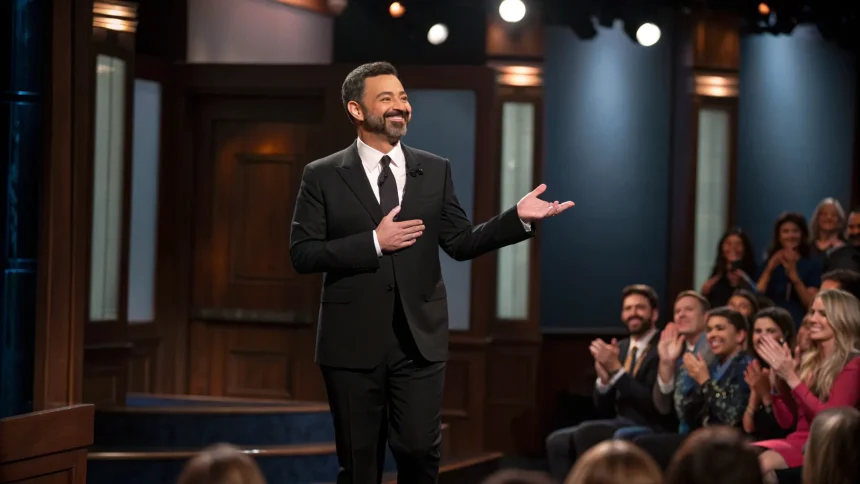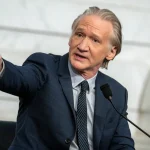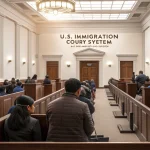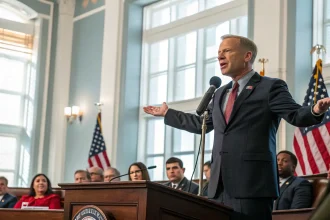Late-night host Jimmy Kimmel made his return to television on Tuesday night, ending a brief absence that followed his controversial comments about the alleged attacker of conservative activist Charlie Kirk. The comedian had been off the air for six days after facing significant backlash for his remarks.
Kimmel’s return marks the latest chapter in what has become a heated intersection of comedy, politics, and public discourse. The incident has sparked discussions about the boundaries of political humor and the responsibilities of public figures when commenting on violent incidents.
The Controversy Explained
The situation began when Kimmel made comments regarding the individual accused of attacking right-wing activist Charlie Kirk. While the exact nature of Kimmel’s remarks wasn’t specified, they generated enough controversy to temporarily sideline the host from his show.
Kirk, a well-known conservative figure and founder of Turning Point USA, has been a frequent target of criticism from liberal commentators. The attack against him had already been a polarizing news story before Kimmel’s comments added another layer of controversy.
Media analysts note that this incident is part of a broader pattern where late-night comedy increasingly overlaps with political commentary, sometimes with unexpected consequences.
Reaction From Viewers and Critics
The six-day gap between appearances is unusual for a nightly talk show host, suggesting the network may have been assessing the situation before proceeding with regular programming. Social media reaction to Kimmel’s return has been mixed, with supporters defending his right to comedic expression while critics maintain his comments crossed a line.
Conservative media outlets had been particularly vocal about the incident, with several calling for accountability from both Kimmel and the network. Meanwhile, supporters argued that the comments needed to be understood within the context of Kimmel’s satirical approach to current events.
Media experts point out three key factors that made this incident particularly noteworthy:
- The direct reference to political violence in a comedy context
- The high-profile nature of both Kimmel and Kirk
- The timing amid an already tense political climate
Late Night’s Political Evolution
This incident highlights how late-night television has transformed from its traditional entertainment roots to become a significant platform for political commentary. Hosts like Kimmel have increasingly incorporated political material into their monologues, reflecting and sometimes influencing public opinion on current events.
“Late-night hosts now function as a kind of alternative news source for many Americans,” said a media studies professor in a recent interview about the changing landscape of evening entertainment. “Their jokes often carry serious political weight.”
The temporary absence of Kimmel from his show demonstrates the real-world consequences that can follow when comedy and commentary about sensitive topics generate significant backlash.
As Kimmel returns to his regular hosting duties, viewers and industry observers will be watching closely to see if and how he addresses the controversy, and whether this incident will affect his approach to political humor going forward. The situation serves as a reminder of the complex relationship between entertainment, free speech, and public reaction in today’s media environment.









